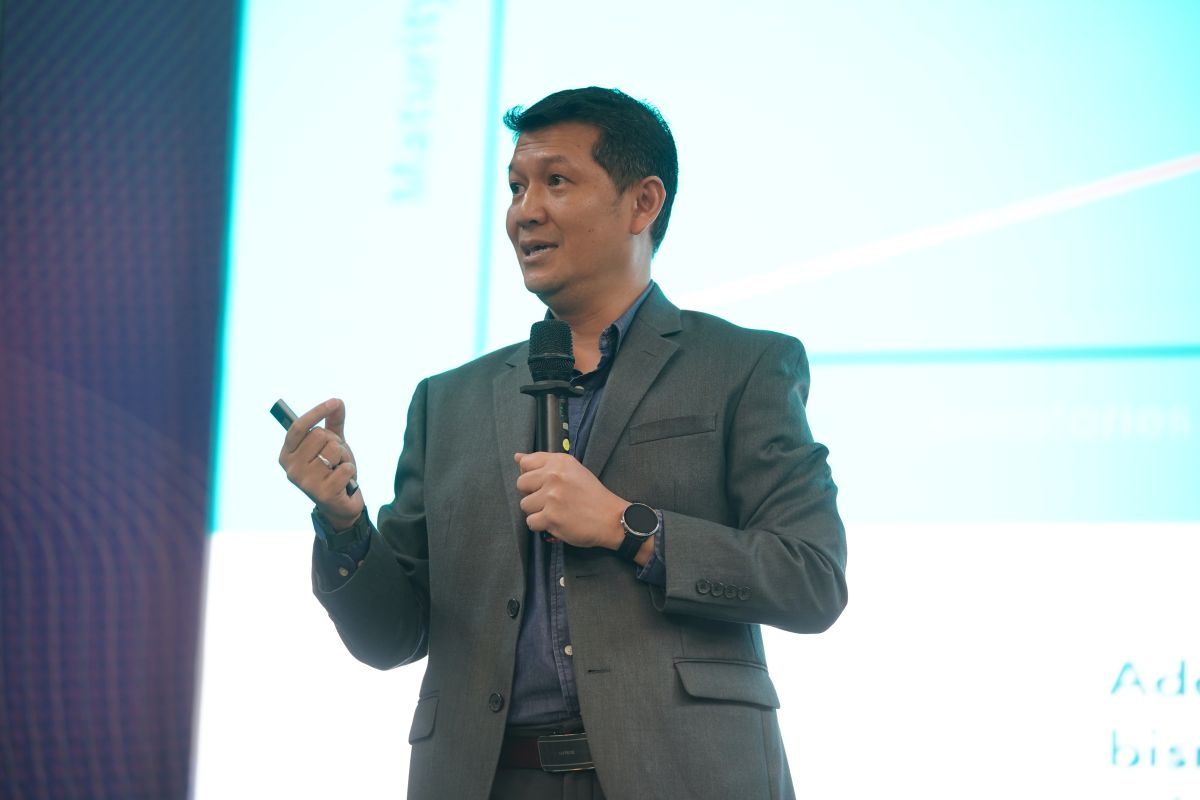Foreseeing the Implementation of Knowledge Management in an Electronic-Based Government System
By Adi Permana
Editor Adi Permana

BANDUNG, itb.ac.id - School of Business and Management (SBM) ITB collaborated with Badan Pengkajian dan Penerapan Teknologi (BPPT) and the Knowledge Management Society Indonesia (KMSI) held the SBM Webinar Series (11/02/21) virtually. The webinar aims to support the implementation of the electronic-based government system. The webinar theme titled "Implementation of Knowledge Management (KM) Supporting Electronic-Based Government Systems".
Several experts were invited to this webinar, namely Ir. Sri Saraswati Wisjnu, M.Kom (BPPT) and Ir. Lucky Esa, MBA (KMSI). Prof. Dr Jann Hidajat Tjakraatmadja, the SBM ITB Professor, was invited to be the moderator.
"Indonesia, as an archipelagic country, needs an electronic-based government system. If the system remains manual, it will require an enormous amount of effort to connect various regions in Indonesia," said Reza Ashari Nasution, the Deputy Dean for Resources SBM ITB.
The president has released PP No. 95 of 2018 about Sistem Pemerintahan Berbasis Elektronik (SPBE). SBPE is a government administration that utilizes information and communication technology in an integrated and sustainable manner.
However, Sri Saraswati revealed problems in implementing SPBE, such as the inefficiency of budget and unintegrated data, "Each administration bureau builds their own systems. Therefore, the role of Knowledge Management/Manajemen Pengetahuan (MP) is indispensable," she explained.
Knowledge Management in SPBE is a component that builds collective intelligence between central and regional government agencies and strengthens Penta helix collaboration to produce service innovations to the community.
Sri explained that several vital points make sustainable SPBE and Knowledge Management. These points start from the planning process and then proceed with implementation, monitoring and evaluation.
On the other hand, Lucky Esa, a practitioner and expert of MP, revealed that the government must slowly develop the implementation of MP in SPBE.
Lucky explained that the knowledge management ecosystem is a service platform formed because of an integrated and complete service process to support MP users' collaboration. The SBM ITB alumni also emphasized the importance of the knowledge management ecosystem.
Also, every person should be involved in the ecosystem, namely developers as platform providers, orchestrators who play a role in creating knowledge connections, and civil servants as users. Lucky hopes that it can be used as a door for collaboration, tying knots in knowledge networks, and as an integrator with this ecosystem.
Translator: Billy Akbar Prabowo


.jpg)

.jpg)
.jpeg)

.jpg)
